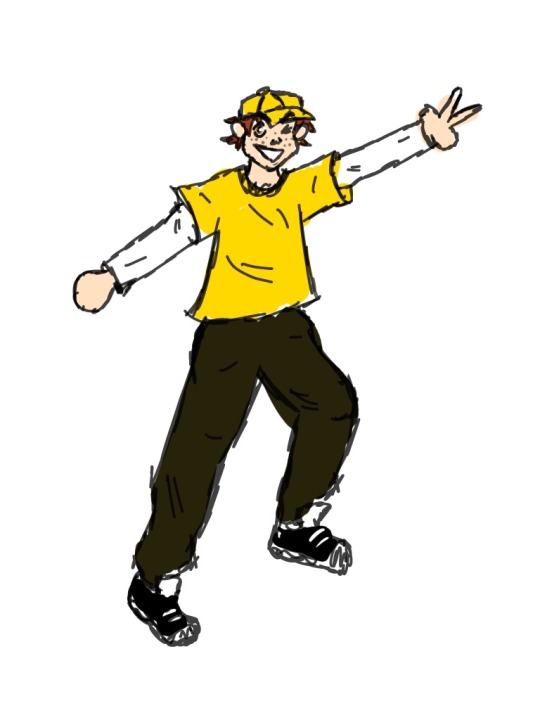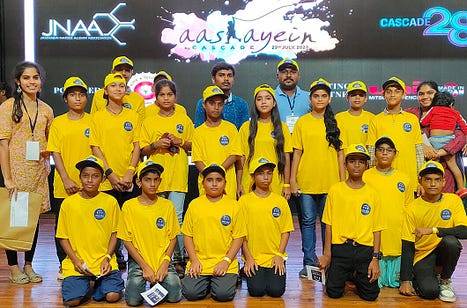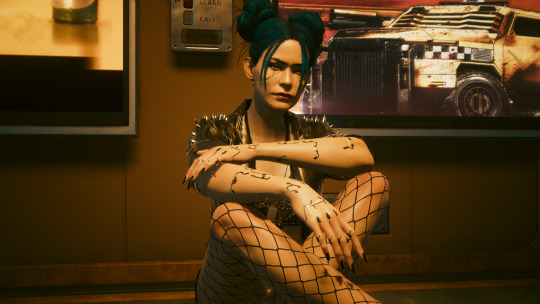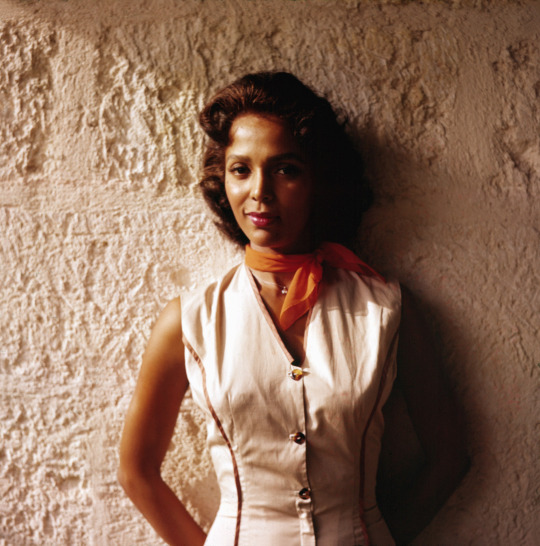#How to Become a Life Coach in Virginia
Explore tagged Tumblr posts
Text
How Ethan Quinn’s tennis career turned on one point: ‘Man, am I cut out for this?’
Matthew Futterman | The Athletic NYT
Photo: Judit Cartiel

When it comes to making major life choices, choosing one route to the top of tennis over another on the outcome of a single point wouldn't figure to be a great idea.
So maybe it's not so surprising that, for long stretches of the past 18 months, Ethan Quinn has been feeling like he made a terrible mistake.
Quinn was a point away from losing the U.S. national college tennis men's singles title in May 2023. A freshman, playing in the biggest match of his life, he was down a set and a service break and facing triple match point against Ondrej Styler of the University of Michigan on a steamy spring day in Lake Nona, Fla.
Lose any of those points, or the fourth match point he faced after saving the first three, and Quinn heads back to the University of Georgia to continue his college career. But in one of the ultimate Sliding Doors moments, he won them all. He won the next set, too, and with it, the NCAA title.
Two months later, instead of preparing for his sophomore season, Quinn found himself on a practice court on Long Island, N.Y. with Jannik Sinner. He was getting ready to play his first ATP Tour main-draw match at the U.S. Open, thanks to the automatic wild card that goes to the NCAA champion - along with the host of other opportunities that appeared too good to pass up in the afterglow of his triumph.
It didn't take long for Quinn to start thinking that maybe he should have passed them up.
"I thought I was going to come on tour and explode, like Ben Shelton did, or Alex Michelsen," Quinn, a 21-year-old native of Fresno, Calif. with wavy blond hair and a boyish visage, said during a March interview in Indian Wells. "I thought I was going to take it by storm. That didn't happen."
Nearly two years on from Quinn's decision, he has evolved into a better tennis player but also into a fable whose ultimate lesson remains unknown.
There are dozens of college players right now weighing whether to leave for the pro ranks. With Quinn, every win and loss becomes an accelerant or a speed bump, another data point to help answer the question that hangs over these first years of his career: did throwing himself to the wolves after somehow escaping from triple match point on an opponent's serve help or hinder his development?
He got some more data points at the Madrid Open, an ATP 1,000 tournament just one rung below a Grand Slam. First, he beat the Brazilian veteran Thiago Monteiro in three sets to qualify for the main draw. In keeping with his style, he clawed through, climbing back from a set down to prevail in two tiebreaks on a surface he has only the most modest familiarity with.
"On the dirt (clay courts), that is a really good W," Brian Garber, his day-to-day coach, wrote in a text message after it was over.
Then he took out Serbia's Dusan Lajovic, another proficient clay-courter, in a more clinical 6-3, 6-4 triumph to reach the second round.
At the time of Quinn's decision to turn pro, there were not many who advised him to stay in college. He'd accomplished his main individual goal, though not every NCAA champion leaves immediately. Both Emma Navarro and Danielle Collins returned to the University of Virginia after winning the women's championship.
One of the loudest voices was Brad Stine, who helped Jim Courier become the world No. 1 in the 1990s and now coaches Tommy Paul. Stine had been guiding Quinn's
development since he was a young boy, and he was unequivocal about which of the forking paths to take.
"I pushed him to turn pro," Stine said in an interview this month. He knew how much Quinn loved his near-perfect undergraduate life at Georgia. Girlfriend, star athlete, playing matches in front of 3,000 rabid Bulldogs fans. Staying is the easy, comfortable choice, Stine told him. The tough choice is to leave.
Quinn was just the fourth freshman to win the NCAA title since 1977. The win helped him earn the Hurd Award, a $100,000 (£75,100) grant to assist his transition to pro tennis.
Stine felt he needed to cash in by collecting the money and the opportunities from wild card entries, as well as deals with sponsors looking to bet on his potential.
Working with his representatives at agency GSE Worldwide, Quinn joined a growing wave of young players with a deal from the Canadian clothier Lululemon. He got a racket deal with Babolat and a national television spot with Prudential during the 2023 U.S. Open. Orgain, the protein drink company, recently became a sponsor.
"I said, 'I think you're going to be successful, but you are looking at a minimum of two years to make the top 100 and those two years will not be easy," Stine said.
He was right about that.
Quinn went 5-9 on the Challenger Tour from early July through mid-October of 2023. The following year, he had stretches of winning just a match or two a month. His biggest weapon is his massive forehand, and in college it often didn't come back across the net. It does in the pros, and more and more, with more and more interest, the higher he moves up the ladder.
As ridiculous as it might sound, Garber swears Quinn has one of the biggest forehands in the world when he can tee it up.
"Ask Tommy Paul, he'll tell you," he said. "In college, that forehand, and the fear of it, won him so many matches. He could hide his backhand. You can't do that in pro tennis."
It's still too early to reach a conclusion, if that is even possible.
There's no counterfactual narrative to compare it with. But while Quinn has hardly been an overnight sensation, his trendline is pointing in the right direction under Garber, a Stine disciple who previously helped get Aleksandar Kovacevic, another American college product, from a ranking in the 300s into the top 100.
Quinn finished 2023 as the world No.
344. By the end of last year, he was No. 202. He began this year with six wins, before losing in the final of the Canberra Challenger to Brazilian sensation Joao Fonseca; a 6-4, 6-4 defeat that has aged quite well.
Then he won and lost a match in the Australian Open qualifiers.
He's now up to No. 115, which puts him on the cusp of the top 100 and direct entry into the Grand Slams.
He's gone from losing to Challenger Tour players to beating them more often than not. He's gone from defeats in ATP Tour qualifiers to winning matches at that level, even against seasoned veterans with top-10 giant-killing pedigree such as Monteiro, who beat Stefanos Tsitsipas at last year's Madrid Open.
Quinn beat two European veterans with years of red-clay experience earlier in April, topping the maddening dropshot specialist Corentin Moutet and former world No.12 Borna Coric in consecutive three-set matches in Barcelona before losing to Carlos Alcaraz in the round of 32.
On paper, it looks like a smooth and steady climb. Living through it week to week has been a different story.
Quinn has missed being in Athens, Ga. - one of America's great college towns. He has missed his friends. He has missed being on a team. The lonely grind, mediocre food and at times depressing accommodations of the lower rungs of professional tennis don't help matters. "I had some regret, honestly," Quinn said.
"I was like, 'Man, am I cut out for this?'"
Quinn has missed being in Athens, Ga. — one of America's great college towns. He has missed his friends. He has missed being on a team. The lonely grind, mediocre food and at times depressing accommodations of the lower rungs of professional tennis don't help matters. "I had some regret, honestly," Quinn said.
"I was like, 'Man, am I cut out for this?'"
On visits back to campus, he speaks with his college coach, Manuel Diaz, one of the best of his era. They talk through his second thoughts and his doubts. Diaz, who retired last year, helped guide former pros John Isner and Mikael Pernfors when they played at Georgia. He has seen versions of this struggle before.
"In our sport, you are going to be challenged and questioned," Diaz said in an interview. "You are going to question yourself, and you have to figure out how to get around that monster."
Garber and Stine have never shied away from the struggle facing Quinn, nor that question about the road not taken. Early on, every time Quinn lost, he'd tell them he thought he should be back in college. During a particularly discouraging stretch, when Quinn was lamenting his choice, they told him that if he wanted to go back to Athens, he should. "We told him we wouldn't hold it against him," Garber said.
Quinn had continued to take classes remotely after he left campus. It would have been a little complicated to regain his NCAA eligibility, and it would have cost him some prize money. But it was doable. If that's where he wanted to be, he should go, they told him. But Quinn stayed the course, figuring this adjustment was going to be tough no matter when he tried to make it.
Garber has tried to help Quinn change from a one-weapon college player into a versatile professional.
Stine told them to start nearly every day working on his crosscourt backhand. He had a tendency to leave it in the danger zone where good players can dance a few steps backwards and turn the ball into a forehand kill shot.
"I want his crosscourt backhand to hang in an exchange with Djokovic," said Stine, who streams all of Quinn's Challenger matches. "And Brian is getting him there."
Inevitably, there have been some valleys. Last August, after Quinn barely showed up in an ugly first-round loss in Lincoln, Neb. in front of about five people, Garber told him to take a few days and decide whether he still wanted him and Stine to stay on. Quinn called a couple of days later to say he did. To say that defeat — and the sloppy one before it - was on him, not them.
Late last year, Garber came to Stine with an idea of his own. He thought Quinn, who is 6-3, needed to change his serve from a platform stance, with his feet apart, to a pinpoint one, where he launches up after drawing his feet together. Sinner made a similar change in 2023 to raise his contact point and add power; his serve effectiveness has since become his main point of difference to his closest rival, Alcaraz.
Garber noticed Quinn's hips were tight. He felt that launching from the pinpoint position would help him speed up his hip rotation and get more oomph behind the ball.
He's now regularly hitting serves above 130 miles per hour and has hit 143 mph on the radar gun. He's also added a serve variation, the slider out wide on the deuce side, to pull his opponent outside the tramlines and open up the other side of the court.
Garber has also helped Quinn develop a four-step routine to help him reset his brain after an emotional point or game. Go to the towel for a breath, do a two-step shuffle on the way back into position, think about how you want to play the next point as you bounce the ball, look up and go. "Make a plan and then commit to the plan," Garber said. "Simple as that."
He's even got something of a team to replace the one he left behind at Georgia. He, Kovacevic and Paul are all based in and around Boca Raton, Fla., with a few other players. Taylor Fritz lives nearby. Frances Tiafoe comes around. They train with Franco Herrera, Paul's longtime trainer and one of his closest friends. Quinn said he watches and learns.
"Working out with guys that are top-10, doing the same things, being really professional, that's helped me know that I could go on court and be really physical throughout the length of a match and really challenge the top players," Quinn said.
Paul, he said, who spends every spare hour he can find on his fishing boat, has also taught him the value of having a release, so your life isn't all about tennis. Quinn has gotten into thrifting during his travels, and he's also become a major coffee nerd
- he's got his own machine, a scale and other gadgets at home.
"There's a lot of times where I'm just spending time in coffee shops, watching them make coffees and just trying to scale it, and then I will use what I've watched to take to my own machine," he said.
"There's a lot of times where I'm just spending time in coffee shops, watching them make coffees and just trying to scale it, and then I will use what I've watched to take to my own machine," he said.
That's not working so badly in tennis either.
#ethan quinn#jannik sinner#carlos alcaraz#emma navarro#danielle collins#tommy paul#frances tiafoe#taylor fritz#matthew futterman#judit cartiel
11 notes
·
View notes
Note
Can you draw this kid from my Mad Libs story?

Billy DeRobertis-Milano
Billy is a 10 year old assistant killer with a degree in parkouring while teaching friends to hopscotch in his neighborhood friend store as to why he delivers for friends. Loyal and young, ambitious and insane, plus he is as smart as a dolphin. He is *one* wild punk. A golden girl by the name of Dorothy Ythorod has it out for him and her weapon is the phrase "Yhtorod". Virginia Hollingsworth Warren now named Virginia Zbornak has married Stan Zbornak, a 9000 year old warlock who wants to plunge Earth in emerald darkness by manifesting an emerald clock tower the size of the sun.

Sophia Petrillo is his life coach and she is the polar opposite of Stan Zbornak. She teaches him how to use his powers and fight in towers and other people's towers. Sophia's towers are used for training.


He's friends with two 13 year old girls who are into stuff that aren't hus strong suit; Tea parties, slumber parties, makeovers, every other stereotypical girl stuff, but Billy would love to pursue those things even if he's male and 10 years old. He drags them along his misadventures of fighting evil angels and helping people in hell who deserved redemption arcs. Those girls are gonna be scarred for life.

The final boss is Stan Zbornak, a man who was one of the finest young men to ever be cooked in the South. One night 9000 years ago, a woman by the name of Delilah Dubois wanted Stan to take her life in the middle of the field where they used to ride on as kids. As the moonlight grew, Delilah revealed to Stan that she is evil, so Stan took her life and she became Stan's newfound powers of evil angelism and gave him leadership over the Angels of skies that want to erase humanity from existence. So 9000 years later, Billy became the chosen one under Sophia's initiation and he train to become a killer against evil and the savior of all demons pure of heart. He meets up with her great grand niece and great grand nephew, Mable and Dipper Pines.

He even fought alongside with Wendy in Gravity Falls. He met up with Barbie from Malibu and she is a life-size doll, all people from Malibu are dolls.

He is even saved by Starfire from the illegal superhero group known as the Titans East, she has human blue eyes that transform into entirely green eyes, she's manly and has piercings in her ears.

She was inspired by Robert Parr-Belcher AKA Mr. Incredible. He was a super until superheroes became illegal in Hollywood. So Mr. I's wife, Helen Parr, is an advocate for superheroes by kicking crime and defeating gods, all in Jump City. Meanwhile, his other wife, Linda Belcher, runs a burger joint on Ocean Avenue. Helen and Linda are married to each other and they married Mr. I and he took both their names to be known as Robert Parr-Belcher.
💛💛💛💛💛💛💛💛💛💛
There's a lot of characters I'm working; Some are original OCs and some are from other medias but done under Mad Libs. Thr name of the story is "Planet Tale" and it's all written as a Mad Lib.

I love drawing extremely puntable children! It’s good to know there are still people out there enjoying mad libs. They were a huge part of my childhood and I feel like they’ve just about disappeared, so this made me very happy.
5 notes
·
View notes
Text
LE DESTIN DU GARDIEN
Fanfiction
Fandom: All for the Game
Charactesr: Original character, Riko Moriyama, Kevin Day, Jean Moreau
Description: From the moment she could walk, they taught her to stand in goal. By the age of five, Aurelia Middlestaff knew only one thing: how to grip an exy stick with unshakable confidence, just as she’d been told. But when the day came—and came without warning—when she would need to protect, not the goal, but the lives of those she held dear, she found there was no choice. Fate had spoken, and all she could do was obey—and try her best.

Chapter 1 Part 2
June 1, 2001
Thirteen-year-old Aurelia Middlestaff didn't shed a single tear as the black BMW carried her away from her childhood home toward the airport. "We're sending you to America," her father had said, "for your upbringing."
But Aurelia understood perfectly well: she was being sold. The foolish game called Exy, which she had been playing since she was five, was finally paying off. Her father had cashed in on his daughter-and simply sold her.
It stung a bit to realize that her fairly normal life was ending just like this. She was heading into the unknown, with no idea how or why she had ended up in such a situation. Aurelia tried to memorize her hometown one last time-the houses, the streets-but the drive went by too fast to say goodbye.
The driver dropped her off at the airport and told her to proceed on her own. Being-as she realized that day-a remarkably savvy child, Aurelia found the check-in desk in an instant, passed through security, and boarded the plane.
She should never have done that. She should have run away. Hidden. Become homeless, lost in the back alleys with the other unfortunates-forgotten and alone.
For years afterward, she would remember that moment as the worst mistake of her life. The long flight. The most neglected seat in economy class-and the pain that came afterward. It enveloped her like a blanket of tight wire. It strangled her. Forced her to submit, to suffer, to fight, to endure.
When she arrived at the airport in West Virginia, she was met by a suspiciously cult-like Japanese middle-aged man. He introduced himself as Coach Moriyama-and told her that from now on, she belonged to his family, that she was his property.
His. Property.
He pointed at a fourteen-year-old boy standing beside him. Handsome...-Aurelia thought fleetingly. She had no idea what kind of hell would begin when they locked her inside the Nest.
"Look at this," the boy sneered as they drove away-at the people, the sky, the sun. "You'll never see it again."
Aurelia remained silent the entire journey. And for the first ten days in the Nest, she didn't say a word. Obediently, carrying out every order-like a dog. When she was told she was now part of the Ravens, she merely shrugged and thanked her master- coach insisted she call him that-for the opportunity.
When they told her her diet would be strictly regulated, she again thanked them-for "taking care of her health"-and smiled inwardly as she planned how to outwit everyone in the Nest.
But when her master first slapped her across the face, Aurelia realized she had to act-and fast.
In the Nest, the only way to earn respect was through flawless Exy play. She had to become the best-just not as good as to supplant Riko, or this deranged Japanese fool would kill her in some cupboard at night.
So the thirteen-year-old began sneaking out for night trainings. On her own. She learned to attack. Studied the Ravens' tactics, watching their practices from the stands-where she, Riko, and Kevin were forced to sit, too young to step onto the court
Oh, Kevin... That boy had been a drama queen since childhood-insufferable. Unlike Riko, at least he tried to be kind, though he wasn't very good at it.
Kevin had grown up in the Nest, and fancied himself Riko's natural successor. He yearned not only to meet others' expectations but to prove himself worthy of the King.
When the Japanese boy yanked Aurelia by the hair and dragged her across the entire Nest for the first time, Kevin merely turned away...
...and buried his nose in a book.
That same night, as a way of apology, Kevin showed up at Aurelia's secret training session. Of course, Riko didn't know about it.
"God, you disgusting wretch, get out of here and stop getting in my way," she thought with her usual venom-yet she let Kevin come closer and allowed him to try scoring a few goals.
He scored exactly zero. Instead, she left with one of Kevin's legs taken out by a perfectly aimed strike.
Kevin's dull, monotonous shots had worn Aurelia down so much that at one point she simply-without a second thought-sent the ball straight into his leg.
Day, unable to react in time, yelped as he rubbed his ankle and shot her an offended glare from beneath his brow. It was then-for the very first time-that he called her by the nickname that would cling to her over the years so tightly it could only be torn away with her skin.
"Witch," he said.
#all for the game#nora sakavic#aftg#kevin day#riko moriyama#neil josten#jean moreau#fanfic#the sunshine court#the foxhole court#the perfect court#the raven king#the golden raven
3 notes
·
View notes
Text

FLP CHAPBOOK OF THE DAY: I Can Catch Anything by Ann Chinnis
On SALE: https://www.finishinglinepress.com/product/i-can-catch-anything-by-ann-chinnis/
I Can Catch Anything mines memory and deep #familial bond. The author explores the significant #relationships that forged her desire to become a physician, and the #poems speak to her deep love of her career in Emergency Medicine. The collection is a love song to the scars we carry with us into the places we were meant to be and as the people we become.
Ann Chinnis is an emergency physician and a leadership coach. She was awarded a Pushcart Prize for her poem “How to Be a Cowgirl”. Her debut chapbook, Poppet, My Poppet, was published by Finishing Line Press. She lives with her wife in Virginia Beach, Virginia, where she loves to fish.
PRAISE FOR I Can Catch Anything by Ann Chinnis
In this, her second chapbook in just a year, Ann Chinnis once again mines memory and deep familial bonds for rich treasure. Ever the masterful storyteller, Chinnis introduces us to a larger-than-life, distant father, a doctor uncle who stitches the jaws of catfish back to new, a rainbow-loving wife who cries over poems with happy endings, and a wild girl-child coming into herself in the wetlands of Virginia of the 1960s. She’s a tangle of wet hair stiff with saltwater, face covered with fish guts, learning to fish and to navigate the Rappahannock River, just as she learns to navigate a world with limited admission to girls, especially those who dream of becoming doctors. Chinnis gives us unflinching close ups of a father-daughter relationship and long nights in the Emergency Department where the poet spent her career as an ED physician. These are poems that pop with color and light, the sound of trains and the scent of the river. The collection is a love song to the scars we carry with us into the places we were meant to be. These are poems that will travel with you for a long time.
–Valarie Hastings, winner of the 2020 Steve Kowit Poetry Prize, author of Searching for Dandelion Greens.
Ann’s poems are about fishing, toiling as an ER doctor, worshipping and resenting her larger-than-life father, clawing her way back from perceived failure, imagining the lives of famous medical inventors, and they won’t stop sizzling in my brain. I kept thinking this is a full-length collection, so packed is it with wild wit and character and gorgeous language. A mini self-portrait of this Virginia Tidewater girl: “She had a tangle of wet hair, fish guts/on her face.” An instruction in “How to Be a Cowgirl”: “Grab a handful/of mane and fling yourself/onto destiny’s haunches.” Her crazy take on the pandemic: “I find a rope and a stick to dance over contagion’s/canyon, where ass eating smaller ass look up with ass in their/mouths, startled.” The minute I finished it I plunged back in at page one.
–Michele Herman, author of Save the Village, Just Another Jack, and Victory Lane
Please share/please repost #flpauthor #preorder #AwesomeCoverArt #poetry #chapbook #read #poems #relationships #life #medicine #doctor #family
#poetry#flp authors#preorder#flp#poets on tumblr#american poets#chapbook#chapbooks#finishing line press#small press
2 notes
·
View notes
Text
Daniel Ally Scam Exposé
I am posting here as I hope to both spread awareness about Daniel Ally’s scams,
Also, all of this is only what I and several other witnessed. If Mr. Ally or his lawyer is reading this, this does not fall under libel as no lies are told. This is all definitely alleged and opinionated statements based on first hand accounts!
I am a former associate of Mr. Ally. I am currently working with several former employees of him, all of whom left within 3 months of employment and learning his true intentions. First, he targets young and downtrodden people almost exclusively, going as far as to say to a 17 year old that “Your [dead] parent would want you to be mentored by me.” I am completely serious. He is the type of person to charge his own mother a fee to take out the trash. He is also not limited to that, but has partaken in grooming, threats, financial abuse, verbal abuse, breaching contracts, telling young kids to drop out of school and buy his courses, and so on.
I have had the unfortunate experience of meeting and somewhat working with self-declared millionaire business guru Daniel Ally, someone you may have heard of. I’ve also spoken to several former employees of his, one an editor who did not receive promised pay, and another who was outright abused by Daniel, emotionally and financially.
At first glance, he is just another “entrepreneur and life coach” or whatever the new fad is for these people to claim to be experts in. I didn’t really know anything about it and fortunately didn’t buy into his scam.
Following some time of contact to him after a family member purchased his mentorship, I quickly came to realize how much of a snake oil salesman he is, including his exorbitant fees for “coaching” and even higher “mentorship” cost, reaching over $50,000. He does not inform interested parties of this price until AFTER they have contacted him and bought his initial “School of Wealth” course for $5,000. This is very reminiscent of Dan Lok and his exorbitant prices. He even tried to convince my family member that they needed to cut off all family and friends to focus solely on him after I called him out.
I quickly distanced myself from him after learning that he is not even a millionaire, despite constantly claiming that and using it as a marketing strategy. He repeatedly tried to convince me to drop out of college, buy his $5,000 course, and then buy his mentorship, telling me he will give me an exclusive discount and charge only $80,000 from the original $100,000! HA!
After denying him, Mr. Ally tried to call me several times and accused me of attacking him before I blocked him.
He lives under the roof of his in-laws along while being embroiled in an audit. Ally also uses plenty of plagiarism and bounced paychecks to his editors for his books. I learned this after foolishly agreeing to spend hours editing one of his books, just for the payment to be non-existent.
He uses the people who pay him to be their mentor to work for him, doing his job. Yes, he has you pay HIM to work for him. He disguises it as “a training period”, and when he eventually does pay, it’s well below the legal minimum wage. The employee was payed on a weekly schedule, the payment being $750 before tax. However, the employee worked over 70 hours that week, this taking place in Virginia where the minimum wage is $12/h as of 2023. This also happened to another former employee I spoke with. They reported that not only did Daniel refuse to provide copies of any contracts or NDAs signed, but would yell at them and even insult them for hours for not being available at 2 am once. He verbally harassed the employee then blocked them once they resigned from their job.
Another employee of his whom had purchased his mentorship, and was told that he often calls at ridiculous hours, such as at 2 a.m., to have them due unimportant work, such as changing the font on one of his social media posts. If you fail to answer his midnight calls, he becomes increasingly passive aggressive and will threaten to fire you.
This is just a surface level exposure of what I have learned about Daniel. There is plenty that is obviously a scam with him, such as his claims that he went from homeless to a millionaire simply by “a leveled up mindset”. He claims to be an expert coach in everything from business and finance to dieting and weight loss. He has never owned or ran a business that produces anything nor has any actual consulting experience with any actual 3rd party business. He is not below outright scams and workplace abuse to make a quick dollar. He claims to have plenty of money in real estate, despite not actually owning or managing any real estate, including the rented property he lives in, the tenant being his mother in law. He can’t even afford to be the one to be pay rent despite being a supposed millionaire. In the times I and others were at Mr. Ally’s home, he and his “wife” were almost constantly wine drunk, with his in-laws being the ones who cared for their toddler.
He was never homeless, growing up in the fairly wealthy suburb of Camp Hill, PA. He likely groomed his now “wife” (they are not legally married or married by the church despite claiming to be a Christian). She was 14 and he 20 when they met and started dating shortly after.
0 notes
Text
West Virginia Announces 2026-27 Roster
October 07, 2026 Charleston, West Virginia
Going into a new expansion team's inaugural season can be stressful and exciting, but one thing we can count on is the roster announced today by President of Hockey Operations and General Manager Jerome Nix-Heriway. Nix-Heriway expressed heavily that they were very impressed with how the team selected faired during summer training camp.
The 2026-27 West Virginia Rivalry will enter the season with 20 players, consisting of 12 forwards (Shane Dust, Nikolai Romanik, Kodak Hunt, Jaylee Hyde, Lee Oakley, Hunter Rosengold, Orie Robins, Robin Mune, Blaine Wilde, Remington Flash, Stark West, and Troy Richard), 6 Defensemen (Hanz Wolfgang, Samuel Flex, Adiran Jackson, Kidd Hark, Walker Iris, and Dain Radar) and two goaltenders (Bartholomew Palmer and Jeremy Roughcut).
While West Virginia waits for its AHL expansion team, the Everett Bridge, to finalize its legitimacy with the league, they will be drawing additional and emergency players from the Washington Capitals' AHL affiliate Hersey Bears and Pittsburgh Penguins' ECHL affiliate Wheeling Nailers.
Owner and Head Coach Ziva Nix sheds some light on the decision on which teams they were partnering with as Minor League affiliates, "When I was approaching teams about having temporary playing rights to their AHL and ECHL players, I wanted to make travel less of a hassle for the players I may need to have called up. Wheeling (ECHL) and Hersey (AHL) are the closest two minor league teams to Ogden Arena as per drive time. I shouldn't expect a player to pack up his life for a 3 or 4 week call up when he can travel home when available."
Owner Nix did make the suggestion that they would be finding common ground with Pittsburgh to the potential of keeping affiliation with the Wheeling Nailers in future seasons.
Out of all 20 players, West Virginia has acquired 5 double digit season veterans, including Adrian Jackson who is entering his 25th season. Jackson has spent the last 24 years with the Toronto Maple Leafs, only making the decision to join West Virginia over the off-season just days after Toronto was kicked from their Playoffs run by the Boston Bruins in the 4th round.
With the signing of Jackson, West Virginia saw more and more talent joining their ranks just before the 2026 NHL draft, where the budding team selected top prospect Kodak Hunt 1st Overall from the Brandon Wheat Kings. Hunt had been on many teams' radars for his high goal production as a defenseman, averaging just over a point per game during his AAA and CHL careers.
West Virginia also acquired Goaltender Bartholomew Palmer from the 2026 Stanley Cup winners Boston Bruins. Palmer had been instrumental for Boston's 4-1 win over Edmonton, stopping 31 of 32 shots on goal. Of those 32 shots on goal, 11 of them were high danger saves. When Palmer was asked about how it felt to be moving teams directly after a win, he gave us this: "When ya win, ya become very valuable. When ya are a winner for the Boston Bruins, yer GM trades ya to an expansion team for the equivalent of unicorn farts."
The Rivalry's Home Opener is October 13, 2026 against the Seattle Kraken. Full and Half Season Tickets are still available for purchase through the Rivalry's website, over the phone at 304-xxx-xxxx, and in person at Ogden Arena in downtown Charleston.
Continue to follow the team here and on Twitter!
(Just to make sure anyone who stumbles upon this, this is a totally fake NHL team I am writing specifically for the purposes of setting up the world for a book I am writing. I love the idea of having the team itself 'exist' outside of the book, and it helps flesh it all out!)
0 notes
Text
The vice president oc’s name is Jordan Aguilar rain wood of the Cherokee people Is married to a women and Has a daughter who is 23, a 18 year old son and an infant daughter. Father was a smoker and died from Lung cancer, grew up on a Cherokee reservation near the us/mexico border, has worked for social justice since she was 17 year olds, when their father died, her family struggled with meeting with basic needs and was relight on social security, but got a scholarship, both due to their Native American heitge and due to their own hard work. He moved across the country by himself to seize the opportunity to give back, as so as they arrived, they joined every social justice they could find , leading struggles to expand financial aid for low income students and at risk students, for immigrant and worker rights, for native land rights, and to speak against the war in Iraq. When they took a year to do a speaking tour in New york, they met high school and collage students to keep building the movement for native rights. She was also on the university student government and was a honor student, while in collage, they enrolled in the national guard and served as an instructor, and stayed as an instructor after graduating with degrees in social science and emcomics, during this time, she also helped create a center for women of color activist and trained them and others for a decade in New York, Texas, florida and Virginia and had postings all over the world in the national guard. After 24 years of service as a instructor and protecting against injustice when he saw it, she returned to their home state, and accepted a one year teaching job in China after the protects and government crackdown. After the year was over she came back to the u.s and became a high school teacher teaching social studies and math, as well as becoming the football coach. While teaching they met their future wife who was also a teacher, a Latina transgender women named Maria. he uses his teaching position to teach young students about injustices and lessions that are often overlooked in the school system. When they were a teacher, they created a student group that protested Buget cuts, police brutality, anti immigrant laws, and the removement of teaching native history in schools. At that time, she was also assisigned to teach geography. Fun fact: he has never gotten more then 5 hours of sleep in their entire life, ecspaiclly since his 1 year old infant still won’t sleep though the whole night, yeah nobody knows how this person hasn’t collapsed from exhaustion yet. Jordan believes all all in organizing the power of the working class his mother crossed the border by herself when she was just 16 years old. Their father was drafted into the Korean War, Mcu rewrite. Has two brothers and a sister, in high school, they were in football and basketball and also ran track
#mexican oc#all rights and credit go to original writer#emonydeborah on ao3#mcu rewrite#native oc#Cherokee oc#author is not native#us politics#marvel#marvel comics#mcu oc#marvel oc#marvel rewrite#marvel mcu#mcu fandom#mcu#inspired by real events#inspired by recent events#mcu fanfiction
0 notes
Text
Transform Your Life with the Best Life Coaching - Genzandu
Life coaching has become increasingly popular in recent years as individuals seek guidance and support in various aspects of their lives. In Virginia, one name stands out among the rest – Genzandu. With a reputation for excellence and a commitment to helping clients achieve their goals, Genzandu is widely regarded as the best life coaching service in the state.

The Importance of Life Coaching
Life coaching is more than just a passing trend – it's a valuable tool for personal and professional growth. From setting and achieving goals to overcoming obstacles and finding fulfillment, a skilled life coach can make a significant difference in one's life. With the right guidance and support, individuals can unlock their full potential and create the life they desire.
What Sets Genzandu Apart?
Genzandu stands out from other life coaching services for several reasons. Firstly, they take a personalized approach to coaching, tailoring their programs to meet the unique needs and goals of each client. This ensures that clients receive the individualized support and guidance they need to succeed.
Secondly, Genzandu boasts a team of experienced and highly qualified coaches who are experts in their respective fields. Whether it's career coaching, relationship coaching, health and wellness coaching, or personal development coaching, clients can trust that they are working with professionals who are dedicated to their success.
Lastly, Genzandu offers comprehensive coaching programs that address all aspects of life. From professional aspirations to personal growth and well-being, their holistic approach ensures that clients receive the support they need to thrive in every area of their lives.
Services Offered by Genzandu
Genzandu offers a wide range of coaching services to meet the diverse needs of their clients. These include:
Career Coaching: Whether you're looking to advance in your current career, transition to a new field, or start your own business, Genzandu's career coaching services can help you achieve your goals.
Relationship Coaching: From improving communication and resolving conflicts to strengthening bonds and reigniting passion, Genzandu's relationship coaching can help individuals and couples navigate the complexities of modern relationships.
Health and Wellness Coaching: Achieving optimal health and wellness is essential for living a fulfilling life. Genzandu's health and wellness coaching services empower clients to make positive lifestyle changes and prioritize their physical and mental well-being.
Personal Development Coaching
Personal development is an ongoing journey of self-discovery and growth. With Genzandu's personal development coaching, clients can overcome limiting beliefs, develop new skills, and unlock their full potential.
How to Get Started with Genzandu
Getting started with Genzandu is easy. Simply visit their website to learn more about their services and schedule a complimentary consultation with one of their experienced coaches. During this initial session, you'll have the opportunity to discuss your goals and determine the best course of action for your unique needs.
Pricing and Packages
Genzandu offers flexible pricing and packages to accommodate various budgets and preferences. Whether you're looking for individual coaching sessions, group workshops, or comprehensive coaching programs, they have options to suit your needs.
Conclusion
Genzandu stands out as the best life coaching service in Virginia for its personalized approach, experienced coaches, and comprehensive programs. Whether you're looking to advance your career, improve your relationships, or enhance your overall well-being, Genzandu can help you achieve your goals and live your best life.
FAQs
1. How long does it take to see results with Genzandu?
Results vary depending on individual goals and circumstances, but many clients experience positive changes within the first few sessions.
2. Are Genzandu's coaching services suitable for everyone?
Yes, Genzandu's coaching services are suitable for individuals from all walks of life who are committed to personal and professional growth.
3. Can I choose my coach at Genzandu?
Yes, clients have the option to choose their coach based on their individual preferences and needs.
4. Is Genzandu's coaching confidential?
Yes, client confidentiality is a top priority at Genzandu. All coaching sessions are conducted in a safe and supportive environment.
5. How can I get started with Genzandu?
To get started with Genzandu, simply visit their website and schedule a complimentary consultation with one of their experienced coaches.
#FemaleLifeCoachNearMe#FreeLifeCoachinVirginia#TeenageLifeCoachNearMe#BecomeaLifeCoachinVirginia#CertifiedLifeCoachinVirginia#LifeCoachNearMe
1 note
·
View note
Text
"Podcast Workflows" Show Asks: "Is Our Attention Span Becoming Shorter?"

Joe Casabona is a podcast systems coach who helps busy solopreneurs take back their time. Some even say he perfectly blends content creation and technology like it’s the best cup of coffee you’ve ever had (he says that). Joe is also the host of the Podcast Workflows podcast. Podcasting has many masters, but few true gurus. Joe is one of them.
His podcast, Podcast Workflows, is recommended listening for any aspirational podcaster. On his December 1st episode, Joe asked, "Can long podcasts compete with short attention spans?" In the episode, Joe takes a machete to the conventional wisdom that current media outlets like social media and podcasting are partially responsible for our "alleged shorter attention spans."
"With the advent of any new technology, there will come its detractors," says Joe in the episode.
He goes on to give examples: "When books were first published, people worried that they would supplant oral storytelling. When Sony introduced its Walkman, people worried that we would become less social."
Joe then discusses how the introduction of short form video has been accused of sharply curtailing people's attention spans. This, of course, relates to shorter podcasts.
"Does your attention span shrink when you watch a short video to its completion?" Joe asks. "How about if you don't read a 400-page book all in one sitting?"
In this episode, Joe discussed short-form versus long-form content. Right in the beginning, Joe questions the studies that short form content damages our attention spans.
I think he has a point. Sometimes, we hear something often enough and begin to accept it as truth. Take, for example, the "we only use ten percent of our brain" myth. Science, however, tells us that we use virtually every part of our brain and most of the brain is active all the time.
As related to attention spans, here's Virginia Heffernan in The New York Times. "So how did we find ourselves with this unhappy attention span conceit, and with the companion idea that a big attention span in humankind’s best moral and aesthetic asset?"
Heffernan goes on to say that "distractibility has its advantages," one of them being protection against obsession, as in Captain Ahab in Moby Dick.
Casabona questions the assumption that we have shorter attention spans. He points out that TikTok increased its video time limit to 10 minutes. And the sweet spot for YouTube appears to be 12 to 20 minutes, according to Joe's research.
When users abandon content, Joe questions the widely held belief that listeners and viewers have a short attention span.
Joe has a more existential conclusion: "If people abandon your content, then they probably don't like your content."
"People's attention spans are short when they don't care about your content," Joe notes.
Joe then asserts that podcasters can effectively leverage short-form content.
"Podcast episodes can be less than five minutes," Joe says. "Daily short podcasts are increasing in number and popularity."
To prove his point, Joe's episode length on this podcast is less than six minutes.
Take, for example, a new short-form podcast, "Arielle and Ned's Daily Tips That May Or May Not Help You."
Hosted by the dynamic duo of Arielle Nissenblatt and Ned Donovan, the show -- launched on December 4th -- is an entertaining and informative daily escape, covering an eclectic range of tips that touch on various aspects of life. From personal hygiene and car maintenance to uncovering the best music gems and mastering the art of waking up early, Arielle and Ned explore it all.
This daily tip podcast is often less than two minutes but offers information-dense content in that short time frame. So far, topics include how to iron your shirt, fantasy football waivers, being thanked, (Don't respond with "no problem", but "you're welcome") and email hygiene.
The simple beauty of the podcast format is that an episode runtime is flexible. It should not expand to meet some outdated expectations that longer content is, by its nature, more valuable.
And it should not be artificially shortened because the podcasters assume that listeners' attention spans are too short to absorb anything longer.
For aspirational and growth-oriented podcasters, listen to Podcast Workflows. As Joe Casabona says in the show's opening: "You get daily tips to improve your process, grow your show, and maybe even make some money."
0 notes
Text
Job Done for Dino Babers After He Couldn’t Get Job Done
Dino Babers doesn’t get to use his lone skill anymore, namely keeping an undeserved job. It didn’t benefit anyone but himself. He certainly wasn’t proficient at coaching football, which was his ostensible role. The fact each conman needs a mark doesn’t absolve ripoffs.
Syracuse should seek a coach who knows how to do more than avoid a justified termination. Dino was terrible at every aspect. Aside from recruiting, strategy, adjustments both within games and seasons, motivation, game management, discipline, fundamentals, he was qualified.
The only thing worse than a ghastly record is an even ghastlier one in the conference. Study hard, as student-athletes have to put the former aspect to use if they don’t make the pros. Syracuse has had players drafted even less frequently than they’ve won.
Happy memories are easy to bring to mind because they were so rare. Babers had one 10-win season, and that was nearly solely because of Eric Dungey, a prototypically gutsy player who was notably recruited by the previous coach. Syracuse’s Batman saving the day is one way to prove how invaluable quarterback play is.
College is a good place to learn the difference between correlation and causation. Take Syracuse football, which has slid into oblivion since joining the Atlantic Coast Conference. But retaining a subpar coach on a semipermanent basis ensured lousy results, not having to play Virginia Tech. Babers didn’t study then moaned class was too hard.
Recruiting has similarly dipped because of who’s in charge, not where it’s based. Tell Larry Csonka Syracuse can’t recruit, and he’ll put you in a headlock from which there’s no escape regardless of his age. Anyone scared of winter is bound to loaf through practice.
Things can always get worse. Sports really do offer examples for life. Fans are worried with reason that the school could hire an even bigger putz. The lack of funding now that paying student-athletes isn’t something done discretely in envelopes remains a looming issue. But getting defenders to stop jumping offside doesn’t need to be an extra expense.
The hiring will be handled by people who should also be fired. John Wildhack unfortunately didn’t also can himself. He’s performed exactly as you’d figure a cable executive who suddenly became athletic director would. It’s no help to have a chancellor who clearly hates sports. Kent Syverud embodies nerdiness without the intellectual virtues. That’s one more reason why you don’t let a Hoya run your school. If he were a saboteur, he wouldn’t do anything differently.
The value of athletics isn’t limited to fans who’ve connected their self-worth to how well college kids can tackle. Throwing money at a popular extracurricular is ultimately a moneymaker. Games serve as a commercial for colleges. A practical example is the best way to teach business. Intercollegiate athletics confirm the oldest entrepreneurial maxim, namely needing to spend money in order to make it. Syracuse is failing economics. They can’t claim they’re retaking it because they found the course material so fascinating.
The next semester might be as woeful. Fans are rightfully worried the hirers of the next coach will cheap out. It’s not like attending the school is similarly geared toward misers. The university has become the conference’s Malt-O-Meal, which is why you can find them on the bottom shelf of the standings.
Sense doesn’t have to cost a fortune. Even a school using a Groupon can still find a coach who’s aware that timeouts can be used to stop the clock, particularly at the ends of halves. Babers seemed mystified by the metaphysical implications of time not moving forward. But Syracuse’s football potential will be limited as long as they’re unwilling to pay for talent, which sends out the wrong message about professors.
Having to sit next to strangers is better than the alternative. Syracuse has spent the Dino era using plenty of elbow room as the chief selling point. It’s been easy to hear conversations while sitting in the Dome ignoring dull carnage on the field. Syracuse shields rare attendees from jarring excitement found in other college stadiums. By contrast, a ticket entitles you to a respite found in a placid environment in case you want to get a newborn to sleep or work on your screenplay.
Even introverts miss crowds. The stadium's been sparse for what's now long enough to be the new standard. Who would endure the hassle of attending? A formerly impressive program hasn't been good for most of this century. Syracuse is The Simpsons of football.
Separating performance from the person isn’t always necessary. Many anti-Babers crusaders have qualified their unhinged contempt for unmitigated failure by claiming he’s a nice guy. That’s not really the case if it makes anyone feel better about his present relationship with employment. Nice people don’t run longterm scams.
Anyone who’s endured a tiresome press conference after another maddening loss is aware how Babers is arrogant and dismissive, which are qualities that are particularly distasteful for someone who won a single bowl game over two presidential terms. His off-putting attitude is reminiscent of Gary Bettman smirking at a reporter while explaining why his latest screwup should make him beloved by fans.
There are particular humans we hope have their dreams and money cut off. A coaching change does require telling someone to get lost. Getting fired sucks no matter the profession or salary. Babers can take comfort in having made a fortune without earning it.
Enjoying the finale was a nice first step. Fans are no longer in position of being fine with a loss that would make the case for replace a grifting coach. The school has taught all sorts of questionable lessons. Syracuse has either set the standard of retaining someone who didn’t deserve the job or created inspiration for anyone who wants an astounding salary despite being hampered by a lack of ability. They won’t get back millions or eight mostly wasted years. For such spendthrifts, Syracuse sure got little in exchange for paying a clown a fortune.
0 notes
Text
How Can Our Children Develop Extracurricular Talents

In modern society, good grades and smarts aren’t enough to secure a future. With ever-increasing competition, one must develop skills beyond the workplace to climb the social ladder. So having an extracurricular talent has become a must for your child to stand out.
While common misconceptions say that a person is born with a talent, that is not the case. A person’s talent has to be nurtured, trained, and developed. Mozart wasn’t born a musician, he was crafted into one as his own father, Leopold Mozart, was a successful musician in his own right.
Benjamin Bloom, an American psychologist, said: “What any person in the world can learn, almost all persons can learn if provided with the appropriate conditions of learning.” He described five vital aspects when it comes to developing talent, which include:
Early start,
Expert instruction,
Deliberate practice,
A centre of excellence, and
Singleness of purpose.

It is also necessary for parents to introduce children to experts in their said craft. If a child is interested in writing, a parent can introduce their child to classic writers like George Eliot, Virginia Woolf, Rabindranath Tagore, and Mary Shelley or modern-day writers like Khaled Hosseini, Alice Walker, Arundhati Roy, Bapsi Sidhwa and John Green.
After getting coached indirectly by experts, a child must practice almost daily. While it is cliche to say ‘Practice makes Perfect’, there is some truth to it, as many people swear testimony to it.
If by their teens, a child is serious about making their craft their career, you can enroll them in schools that will help them to develop their skills. These experts will personally train them to touch the skies.
The next step might be taken only if a child is serious about making a career out of their hobby, and not just wanting to develop it to climb the social ladder.
The child should be solely devoted to mastering the craft. They must live and breathe it, and make it their driving purpose. One must be careful while treading this path, as it can lead to social isolation and loneliness. If a child is serious about their craft, their parents must encourage them to go further, but at the same time be careful about the social life of the child. Many talented artists have lost their lives because of this obsession, and it would be tragic to be an addition.
Filaantro understands the need to develop talent from an early age. This year, we got students to participate in Jamnabai Narsee Monjee School’s Aashayein, where children participated in myriad events. The students were able to bag prizes and a scholarship.
Thank you for taking the time to read this article. Make sure to share it with your friends and family members.
#filaantro#crowdfunding#fundraising#charity#donate#education#nonprofits#raise funds#donations#volunteering
0 notes
Text




Introducing Virginia Fox!
Lifepath: Corpo
Nicknames: V (Post Arasaka), Princess (Jackie ONLY and she MEANS IT when she says that), Sweetheart (Johnny, started patronising, moved into a genuine nickname)
Pronouns: She/Her
Sexuality: Bi/Pansexual
Date of Birth: October 12th 2046 (31 during 2077)
Notable Relationships: Jackie (Best friends), Panam (Friends), Judy (Ex in all ending situations as Virginia can't stop herself from returning to NC), Goro (Casually dated post The Star ending, Friends post The Devil ending, Enemies post any other ending), River (Ex, all endings), Johnny (Together, all endings), Kerry (Bros who share Johnny)
Bio: The only child of two high ranking Arasaka corpos, Virginia Fox was raised from birth knowing that eventually she would have a position at Arasaka when she grew up. Groomed in a variety of skills from a young age, as a teenager her aptitude for intelligence work caught the eye of the counter intelligence unit, leading to them recruiting her out of Arasaka Academy at 16 and putting her in a fast track training program to start her with the company at 18 once she was legally an adult. She took on her first corporate assassination a month after she turned 18. Counter to the corpo side of her, a young Virginia also spent a lot of her time playing piano, something she enjoyed greatly until she had to quit at 16 when she was recruited. She doesn't play again until after Mikoshi, at Kerry's urging to show him why she knew so much about his fancy piano in his mansion. When she was 20 years old, she was approached by her superiors for what they told her was a promotion. Arasaka paid for full body biosculpting and turned her into an undercover agent designed to target the skeezy corpos who spent their money and time at places like Clouds. Her role was to seduce and kill whoever they pointed her at, in a kind of Black Widow situation. She did that until she was 25. A few weeks after recovering from the biosculpting surgery she turned 21 and allowed her coworkers to take her to a random bar in Heywood that she knew was populated with Valentinos. Figuring she had to keep her coworkers on her side due to how much attention Arasaka had been paying to her with this promotion, she went along with them, but wasn't happy about it. Eventually, her coworkers got so drunk they picked a fight with Valentinos at the same time a tall, cheerful Valentino had been dared to come get her away from the group, his friends thinking she was a corpo joytoy. When she clarified that she was a corpo too, he introduced himself as Jackie, shortening her name to V when she introduced herself to him.
They were fast friends, like the brother she'd never had- and she spent much of her time when not working with him and his gang friends. Their favourite tradition being taking Jackie's old truck out to the Badlands after one of them had a bad day and smoking weed under the stars. She coached him through the many, MANY loves of his life and he began to show her a life outside of the corpo bubble, introducing her to some of the parts of Night City that only a Street Kid would know. Jackie also introduced her to Padre, who spent several years offering her a job as a merc. Virginia, who was becoming increasingly dissatisfied with her job considered taking him up on it, but her contract was ironclad. At the same time, Jackie also introduced her to Vik when he had to be collected from the ripper's clinic after a shoot out gone wrong where Virginia had to stash him in her apartment so his mother didn't find out what he'd done. It was at that point that Jackie left the Valentinos, realising that Solo work might not be safer, but at least he might make more money out of being shot at. (tw: SA) When Virginia turned 25, a hit job went badly when the target was more violent than she was expecting, pulling out chunks of her hair and forcing her to perform oral sex on him before telling her he knew what she was and trying to strangle her to death. After she somehow killed the target, she took her contract to Padre who promised to secretly get it to a lawyer to see if she could get out. Arasaka noticed this, and steered her in a different direction, removing her from the now dubbed "Aphrodite Program" and framing it as another promotion that had her doing counter intelligence from further away. They also put a PR Strategist named Celia in her path, who Virginia fell hard and fast for. Padre's lawyer couldn't find a loophole for escape, but now her work was less dangerous and she was in love, she forgot that she'd even wanted to leave.
For the next few years, Virginia dated Celia who hated Jackie and her other Valentino friends with a passion. She also slowly began taking combat stims and synth coke, now surrounded by people taking the stuff on a daily basis, and didn't notice when it became part of her daily routine. Without her knowledge, during a routine check up, Arasaka installed regulators which upped her tolerance to the drugs, meaning she began taking even more. Three years into her relationship with Celia, they agreed to get married and petitioned the company for permission. Arasaka denied, claiming they had better matches for them both. Virginia refused, Celia accepted. At this point, any good feelings Virginia had toward Arasaka broke completely, and she threw herself into her work to keep her mind from the heartbreak. Her first act after the break up was to jump on a plane to Japan for an international conference where she grabbed the first person she was slightly attracted to and made him get on his knees in the bathroom to get her off. Thus, started V's slut era. For the next two years, V did her job without fuss but began secretly feeding information to Padre, no longer caring if she was caught. Her drug use spiralled out of control when she wasn't around Jackie, so he had no idea how bad things had gotten. This was her party era, where Jackie had enough of a steady income from merc work and the happiness of his new relationship with Misty to indulge her in her party mood, only putting his foot down when she started breaking his friend's hearts for fun. Now 30 and working under Jenkins, V found herself in Texas while following a journalist nomad when she was called back to Night City due to a Cyberpsycho attack on the tower. Having lost a grandfather in Johnny's bombing she took it seriously, returning to be redeployed a week later to the job that would lead to her being fired.
Personality: Virginia is smart and driven, which doesn't always work in her favour. She enjoys climbing ranks and yearns for power, but her constant need to be actively doing something means that she hates stagnating or stillness. This also means that she deals with her emotions in ways that aren't always the healthiest, leading her into jumping in the middle of situations she would normally know better than to leap into without thinking.
Friendships (or what I have expanded so far):
Kerry: V and Kerry are fast friends, two lonely people in Night City drawn to each other in a way that Johnny describes as "annoying" (but he's mainly upset that his best friend seems to enjoy V's company more than he ever enjoyed his). The moment that cemented their friendship was when Kerry asked to speak to her during the release of his song with Us Cracks, where V leaned in to kiss him on the cheek and he rejected her. V was confused by this as she wasn't trying to hook up with him, before asking him "Is the only time someone touches you when they're trying to fuck you?". Kerry had looked so upset at that realisation that they'd hugged each other and that was that. They text every day about the most random, mundane shit, even when Virginia goes to Phoenix after Mikoshi. She has an open ticket to any of his concerts and he keeps pestering her to secretly be on one of his new album tracks. When Johnny returns, their friendship becomes a little strained as Kerry is torn with his feelings. His old love for Johnny and his jealousy that V seemingly gets the Johnny that he never got (he later realises that V did get that Johnny, it was just all in her head). Eventually V gets annoyed with the way Johnny and Kerry can't get their shit together so she orchestrates a threesome at a party, reasoning that they might actually have some post-nut clarity and talk to each other. It works, and V and Kerry eventually come to a "shared custody" agreement of Johnny, who is more than happy to have two people's attention on him.
#cyberpunk 2077#I need a V tag#let me think of one and get back to you#virginia fox#moderndaycirce vp tag
5 notes
·
View notes
Note
I agree with you about the Oscars; it's pretty much become overly pretentious and predictable (Disney/Pixar always wins Best Animated Feature, something really long and depressing wins Best Picture, etc.). What I tend to pay more attention to are the Razzies (awards for the year's worst films). Can you believe the Razzies nominated Tom Hanks in 2 categories for his performance in Elvis? Like, okay, maybe his accent was a little weird at times, but his performance was great! What the heck were they thinking?
..im gonna be absolutely honest w you, i thought the accent was the most bizarre thing ive ever had someone try to tell me was southern-passing. i was honestly baffled by the way the colonel kept insisting he was from west virginia in the movie bc of how ludicrously dutch he sounded at all times 😂😂 and then i listened to the colonel's real-life speaking voice and said oohhhh.
p sure they spent so much of their budget getting austin up to par w his ten billion vocal coaches that tom had to fend for himself 😉
i did think his acting was Great, in a perfectly sleazy, tongue-in-cheek, baz-luhrmann-movie kind of way ! but i can also see how it could come off as over-the-top if you weren't familiar or comfortable with the way baz's work tends to bash you over the head. personally i found the beauty of tom's performance in how even his needling the audience for sympathy was obvious and hamfisted... but as we've already established, critics don't know jack shit ! 😁
#ask#ik they were bashing him for his prosthetics too but honestly i didnt think they were that bad ?#or maybe its just that tom does such a fatastic job at making me Hate him so fervently#that i cant stand to look at him for long enough to tell ?? sdfsfd
6 notes
·
View notes
Text
How Race Prevented Dorothy Dandridge from Being a Star By Susan King

Dorothy Dandridge was the first Black movie star. “She was our queen,” once said African American actress Nichelle Nichols (of Star Trek fame). Dandridge also made history with her full-blooded performance as the femme fatale in Otto Preminger’s 1954 CARMEN JONES. She became the first Black woman to earn an Oscar nomination for Best Actress and the first to grace the cover of Life magazine.
Her achievements were during a decade before the Civil Rights Act of 1964, and her nomination would mark five decades before a Black actress, Halle Berry, would win in that category. Berry also won an Emmy for her performance as the Dandridge in HBO’s Introducing Dorothy Dandridge (1999).
By the time Dandridge landed her role in CARMEN JONES, she had already paid her dues tenfold. She knew how difficult it was to be gifted, young, Black and beautiful in Hollywood. “CARMEN JONES was the best break I ever had,” said Dandridge, who tragically died at the age of 42 in 1965. “But no producer ever knocked on my door. There just aren’t as many parts or a Black actress. If I were white, I could capture the world.”
She was a child singer along with her older sister Vivian as part of The Wonder Children. Her mother, actress Ruby Dandridge, was the ultimate stage mother and so was her companion Geneva Williams, who oversaw their career. She was strict and allegedly was abusive. With family friend Etta Jones, Dorothy and Vivian became The Dandridge Sisters. They came to Hollywood around the time she was four. “I was one of those musical kids you hear about, with parts in pictures like the Marx Brothers’ A Day at the Races (‘37),” Dandridge said.

The Dandridge Sisters performed in Europe, the famed Cotton Club and appeared on Broadway in 1939 with Louis Armstrong in the short-lived Swingin’ the Dream. They also sang with African American band leader Jimmie Lunceford. And besides appearing in A DAY AT THE RACES, they were a specialty act in such movies and shorts as Snow Gets in Your Eyes (‘38), in which they perform “Harlem Yodel” and “Rhythm Rascals.”
Even as a teenager, you can’t keep your eyes off of Dandridge. She had the indescribable “It” factor. And after she went out on her own, she continued to dazzle in short musical films known as “soundies” that were produced for video jukeboxes of the era. She also had tiny roles, often uncredited, in movies, including David O. Selznick’s popular World War II film SINCE YOU WENT AWAY (‘44). Perhaps her most notable performance at this time was in the Sonja Henie musical ice-skating comedy SUN VALLEY SERENADE (‘41) in which she performs “Chattanooga Choo Choo” in a slinky black ensemble with the tap-dancing duo Harold and Fayard Nicholas.

“No film fan has ever forgotten her as a dream girl with the brothers,” said African American film historian Donald Bogle in his book Hollywood Black: The Stars, the Films, the Filmmakers.
She was all of 19 when she married Harold Nicholas, whom she had first met while performing at the Cotton Club. Their only child Harolyn was born in 1943. Nicholas had gone off to play golf the day Dandridge went into labor and he took the car keys, so she was delayed getting to the hospital to deliver the baby. Harolyn was born brain damaged and was never able to speak or even recognize Dandridge.
Dandridge believed the reason she was born mentally disabled was because of the delay in delivery. Dandridge would be haunted by guilt the rest of her life. She provided expensive care for her daughter, but when her finances became grim, Harolyn became a ward of the state. According to the TCM.com overview of BRIGHT ROAD (‘53), in which Dandridge portrays a dedicated young schoolteacher, seeing “healthy African-American children playing on the set proved too much for her, and she fled to her dressing room.”
Dandridge had always wanted to be a dramatic actress and attended the progressive Actors’ Lab in Los Angeles, becoming one of the school’s first Black students. Marilyn Monroe was also one of the students and became great friends with Dandridge. It would be considered a communist organization in the early 1950s with several members being blacklisted and the theater soon closed.

She also worked with noted coach and composer/arranger Phil Moore to develop a nightclub act, which Dandridge performed internationally to great acclaim. Under Moore’s guidance, Dandridge went from the young vivacious singer to a sultry, sexy chanteuse. Time magazine wrote about a nightclub appearance where she “came wriggling out of the wings like a caterpillar on a hot rock.” And according to a 1997 New York Times piece by Janet Maslin, when Dandridge headlined the Mocambo nightclub in L.A. in 1953, the cigarette girls actually sold copies of Alfred Kinsey’s Sexual Behavior in the Human Female.
“I think it was really the heartache over my child and the failure of my marriage that forced me to make a success out of my career,” Dandridge explained in 1954. “I had to keep busy. I threw myself into my work. It’s a wonderful therapy. You don’t have time to feel sorry for yourself.”
She landed roles in three low-budget films including TARZAN’S PERIL (‘51). Dandridge is the best thing about the adventure as Melmendi, the young, beautiful and feisty Queen of Ashuba, who is kidnapped and rescued by Tarzan. Bogle notes that Lex Barker’s Tarzan shows a lot more interest in Melmendi than he does in Jane (Virginia Huston). “Here were suggestions of an interracial romance that the studio didn’t explore.” But audiences were titillated. Ebony magazine put her on the cover with the banner: “Hollywood’s Newest Glamour Queen.’’

She would appear in a few more roles, including THE HARLEM GLOBETROTTERS (‘51) and BRIGHT ROAD opposite Harry Belafonte, who would star with her the following year in CARMEN JONES. The operetta gave her high visibility but few additional film roles. Also, she had fallen in love with Preminger, who didn’t give her the best career advice. They would work together one more time in the film adaptation of PORGY AND BESS (‘59), for which Dandridge was nominated for a Golden Globe.
“But sadly, her decline came soon after her triumph,” notes Bogle in Brown Sugar. “She realized she was a token figure within the movie colony, her position not much different than Lena Horne’s in the ‘40s. There was no great follow-up of roles to sustain her fame. Three years passed before she appeared in another film.” Dandridge once said of racial prejudice: “It is such a waste. It makes you loggy and half-alive. If it gives you nothing.”
Dandridge was drinking heavily and taking antidepressants by the late 1950s. In fact, when Dandridge married a second time in 1959, to the man who was not only abusive but would leave her broke, she was so drugged that she fell asleep at the reception. “Dandridge’s last years were lonely and sad as she struggled to find work,” said Bogle.
#Dorothy Dandridge#Black actresses#Hollywood Black#race#Black representation#TCM#Turner Classic Movies#old Hollywood#classic film#Susan King
397 notes
·
View notes
Link
Article: Five Pioneering Black Ballerinas: ‘We Have to Have a Voice’
Date: June 17, 2021
By: Karen Valby
These early Dance Theater of Harlem stars met weekly on Zoom — to survive the isolation of the pandemic and to reclaim their role in dance history.
Last May, adrift in a suddenly untethered world, five former ballerinas came together to form the 152nd Street Black Ballet Legacy. Every Tuesday afternoon, they logged onto Zoom from around the country to remember their time together performing with Dance Theater of Harlem, feeling that magical turn in early audiences from skepticism to awe.
Life as a pioneer, life in a pandemic: They have been friends for over half a century, and have held each other up through far harder times than this last disorienting year. When people reached for all manners of comfort, something to give purpose or a shape to the days, these five women turned to their shared past.
In their cozy, rambling weekly Zoom meetings, punctuated by peals of laughter and occasional tears, they revisited the fabulousness of their former lives. With the background of George Floyd’s murder and a pandemic disproportionately affecting the Black community, the women set their sights on tackling another injustice. They wanted to reinscribe the struggles and feats of those early years at Dance Theater of Harlem into a cultural narrative that seems so often to cast Black excellence aside.
“There’s been so much of African American history that’s been denied or pushed to the back,” said Karlya Shelton-Benjamin, 64, who first brought the idea of a legacy council to the other women. “We have to have a voice.”
They knew as young ballet students that they’d never be chosen for roles like Clara in “The Nutcracker” or Odette/Odile in “Swan Lake.” They were told by their teachers to switch to modern dance or to aim for the Alvin Ailey company if they wanted to dance professionally, regardless of whether they felt most alive en pointe.
Arthur Mitchell was like a lighthouse to the women. Mitchell, the first Black principal dancer at the New York City Ballet and a protégé of the choreographer George Balanchine, had a mission: to create a home for Black dancers to achieve heights of excellence unencumbered by ignorance or tradition. Ignited by the assassination of the Rev. Dr. Martin Luther King Jr., he founded Dance Theater of Harlem in 1969 with Karel Shook.
Lydia Abarca-Mitchell, Gayle McKinney-Griffith and Sheila Rohan were founding dancers of his new company with McKinney-Griffith, 71, soon taking on the role of its first ballet mistress. Within the decade, Shelton-Benjamin and Marcia Sells joined as first generation dancers.
Abarca-Mitchell, 70, spent her childhood in joyless ballet classes but never saw an actual performance until she was 17 at the invitation of Mitchell, her new teacher. “I’ll never forget what Arthur did onstage” she said of his Puck in “A Midsummer Night’s Dream” at New York City Ballet during a Tuesday session in January. “He made the ballet so natural. Suddenly it wasn’t just this ethereal thing anymore. I felt it in my bones.”
Marcia Sells, 61, remembered being 9 and watching with mouth agape when Abarca-Mitchell, McKinney-Griffith and Rohan performed with Dance Theater in her hometown, Cincinnati. “There in front of me were Black ballerinas,” Sells said during a video call in April. “That moment was the difference in my life. Otherwise I don’t think it would’ve been possible for me to think of a career in ballet.”
Shelton-Benjamin left her Denver ballet company, where she was the only Black dancer, turning down invitations from the Joffrey Ballet and American Ballet Theater, after reading a story about Dance Theater of Harlem in Dance magazine. Abarca-Mitchell was on that issue’s cover — the first Black woman to have that honor. At her Harlem audition, Shelton-Benjamin witnessed company members hand-dying their shoes and ribbons and tights to match the hues of their skin. Here, no traditional ballet pink would interrupt the beauty of their lines. “I had never seen a Black ballerina before, let alone a whole company,” Shelton-Benjamin, 64, said during a February Zoom meeting. “All I could think was, ‘Where have you guys been?’”
Finding one another back then, at the height of the civil rights movement, allowed them to have careers while challenging a ballet culture that had been claimed by white people. “We were suddenly ambassadors,” Abarca-Mitchell said. “And we were all in it together.”
They traveled to American cities that presented such a hostile environment that Mitchell would cancel the performance the night of, lest his company feel disrespected. But they also danced for kings and queens and presidents. In 1979, a review in The Washington Post declared their dancing to be a “purer realization of the Balanchinean ideal than anyone else’s.” Their adventures offstage were similarly electric, like the night in Manchester when Mick Jagger invited them out on the town. “We walked into the club with him and everybody just moved out of the way,” Shelton-Benjamin said.
Cultural memory can be spurious and shortsighted. Abarca-Mitchell was the first Black prima ballerina for a major company, performing works like Balanchine’s “Agon” and “Bugaku” and William Dollar’s “Le Combat” to raves. In an April Zoom session she said she first realized how left out of history she was when her daughter went online to prove to a friend that her mother was the first Black prima ballerina. But all she found was the name Misty Copeland, hailed as the first. “And my daughter was so mad. She said: ‘Where’s your name? Where’s your name?’ It was a wake-up call.”
While Abarca-Mitchell paused to wipe her eyes, Shelton-Banjamin stepped in: “I want to echo what Lydia said. There was a point where I asked the women, ‘Did it all really happen? Was I really a principal dancer?’ And Lydia told me: ‘Don’t do that! Yes, you were. We’re here to tell you, you were.”
Sells went on to a career that included serving as the dean of Harvard Law School, until she left this year to become the Metropolitan Opera’s first chief diversity officer. Shelton-Benjamin is now a jeweler who recently became certified in diamond grading. She, along with Abarca-Mitchell, McKinney-Griffith and Rohan, continue to coach and teach dance. They all have families, including another grandchild on the way for McKinney-Griffith, who announced the happy news to whoops on a recent call.
But they are done swallowing a mythology of firstness that excludes them, along with fellow pioneers like Katherine Dunham, Debra Austin, Raven Wilkinson, Lauren Anderson and Aesha Ash. It’s true that Misty Copeland is American Ballet Theater’s first Black female principal. It is also true that she stands on the shoulders of the founding and first generation dancers at Dance Theater. A narrative that suggests otherwise, Sells said, “Simply makes ballet history weak and small.”
Worse, it perpetuates the belief that Blackness in ballet is a one-off rather than a continuing fact. And it suggests a lonely existence for dancers like Copeland, a world absent of peers. “We could’ve been Misty’s aunties,” Abarca-Mitchell said. “I wish she was part of our sisterhood, that’s all.”
Dance Theater saved them from being the only one in a room. The work was so hard, the expectations so high, the mission so urgent, that those early days demanded a familial support system among the dancers. “Someone would take you under their wing and say, ‘You’re my daughter or sister or brother,’” McKinney-Griffith said. “The men did it also. Karlya was my little sister, and we kept that through the years.”
Like in any family, the relationships are complicated. The women speak of feeling shut out of today’s Dance Theater of Harlem. They are rarely brought in for workshops or consultations on the ballets they were taught by Mitchell. At his memorial service in 2018, they wept in the pews unacknowledged. “We’re like orphans,” Rohan said with a laugh in a Zoom session. “If the outside world neglects us, it seems all the more reason that Dance Theater of Harlem should embrace us.”
Virginia Johnson, a fellow founding member, is now the company’s artistic director. She assumed the helm in 2013 when Dance Theater returned after an eight-year hiatus caused by financial instability. “It makes me sad to think that they feel excluded,” Johnson said in a phone interview. “And it’s not because I don’t want them. It’s just because I can’t manage. I’ve probably missed some chances but it’s not like I haven’t thought about the value of what they bring to the company. They are the bodies, the soul, the spirit of Dance Theater of Harlem.”
“We all think about and love and respect what Arthur Mitchell did,” she added, “but these are the people he worked with to make this company.”
By the end of May, the five members of the 152nd Street Black Ballet Legacy were fully vaccinated. They traveled from Denver, Atlanta, Connecticut, South Jersey and, in Sells’s case, five blocks north of Dance Theater of Harlem for a joyful reunion. So much is different now at the building on 152nd Street. The old fire escape in Studio 3 where they’d catch their breath or wipe tears of frustration is gone. So are the big industrial fans in the corners of the room, replaced by central air conditioning. But they can still feel their leader all around them in the room. Crying, Abarca-Mitchell told McKinney-Griffith, “I miss Arthur.” (Though they all laugh when imagining his response to their legacy council. “I do believe he would try to control us,” Rohan said. “’What are you doing now? Why are you doing that? Let me suggest that. …’”)
The body remembers. In Studio 3, all Shelton-Benjamin had to do was hum a few notes of Balanchine’s “Serenade” and say “and” for the women to grandly sweep their right arms up. “These women help validate my worth,” Abarca-Mitchell said afterward. “I don’t want to take it for granted that people should recognize Lydia Abarca. But when I’m with them I feel like I felt back then. Important.”
Even as the world reopens and they grow busy again, they’ll carry on with their Tuesday afternoons. They want to amplify more alumni voices. They dream of launching a scholarship program for young dancers of color. This fall, they’ll host a webinar in honor of the director and choreographer Billy Wilson, whose daughter Alexis was also part of Dance Theater.
“What we have is a spiritual connection,” said Rohan, who turns 80 this year. She was 27 when she joined the company, already married and hiding from Mitchell that she was a mother of three young children for fear it get her kicked out. When she eventually confessed a year later, he got mad, insisting he would have increased her salary if he’d known she had mouths to feed.
“Arthur planted a seed in me, and all these beautiful women helped it grow,” she said. “Coming from Staten Island, I was just a country girl from the projects. My first time on a plane was to go to Europe to dance on those stages. I thanked God every day for the experience. This year, coming together again, I remembered how much it all meant to me. I didn’t have to be a star ballerina. It was enough that I was there. I was there. I was there.”
#article#ballet#the ny times#marcia sells#sheila rohan#gayle mckinney griffith#karlya shelton-benjamin#lydia abarca#virginia johnson
46 notes
·
View notes